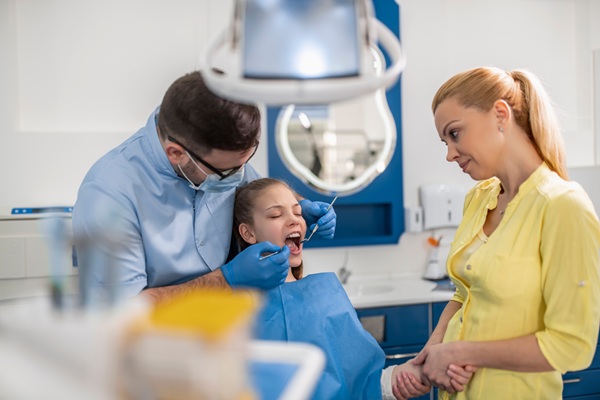Dental Implants: What Is an Abutment?

Dental implants are being used more and more frequently due to their ability to restore and replace teeth that are in bad shape or even completely missing. They offer people the ability to eat naturally and smile confidently again.
While dental implants are able to restore and replace teeth, they cannot do that on their own. Implants work with a prosthesis that acts as the actual artificial tooth, as well as a connector known as the abutment. Being aware of each part of the dental implant is important for someone considering this option to restore or replace their teeth.
Dental implants: What is the abutment?
Below, we outline what an abutment is and explain the role that it plays in the dental implant process. Read on to find out more!
Abutments
This component of the dental implant is also referred to as the connector because its job is to connect the dental implant to the artificial tooth, which is typically a dental crown. Because dental implants only replace a tooth’s structure, which is inside the bone, there must also be a connecting structure that allows for the artificial teeth to stay in place on top of the implants.
Abutments tend to be made of metal, such as gold or stainless steel. The dentist or implant specialist will determine the most ideal location of the implants within the mouth, as well as what the patient's individual needs are.
The abutments are tooth-shaped and custom-created within a dental lab so the dental crown can be perfectly placed later on. The dental crowns will also be custom-created based on the abutment shape, size and location. Once the crowns or other artificial teeth are placed, the abutments will not be visible to the eye.
How do abutments work?
The abutment simply connects the artificial tooth to the implant post. Understanding this part of the implant process can be helpful, as there are multiple steps.
Immediately after dental implants are placed during surgery, a healing process must take place. During the healing process, the implants will begin to fuse with the jawbone. Once the implants have completely fused with the jaw, the abutments can be placed on top of the implants.
It is crucial for the implants to heal and fuse prior to abutments being placed. While implants are known to be quite successful, there are rare times when they may fail, which could cause problems with the abutments. Although time-consuming, it is ultimately best to let natural fusing and healing take place.
Contact us today
Want to know more about abutments and the role that they play in the dental implant process? We can help you. Dental implants can help improve your oral health and the way your smile looks. If you are ready to get started, then reach out to our office! We can answer any questions you have about dental implants. Give us a call or stop by today.
Request an appointment here: https://gallodental.com or call GDC Smiles at (770) 504-5725 for an appointment in our Gainesville office.
Check out what others are saying about our services on Yelp: Read our Yelp reviews.
Recent Posts
Sleep apnea is a serious sleep disorder that affects millions of individuals worldwide. It occurs when breathing repeatedly stops and starts during sleep, disrupting rest and potentially causing long-term health consequences. Many people are unaware that a general dentist plays a key role in diagnosing and managing sleep apnea, particularly with non-invasive treatment solutions. By…
No matter your stage in life, maintaining a healthy smile is important. Regular visits to a family dentist provide comprehensive care for people of all ages, ensuring a lifetime of healthy smiles. These routine check-ups address immediate concerns, can prevent future dental issues, and provide you and your family with the information you need to…
ClearCorrect® is a teeth-straightening system that utilizes clear aligners to move teeth into a more appropriate position. There are many benefits to choosing ClearCorrect treatment. It is helpful to understand exactly what it is, how the treatment process works, and what cosmetic and oral health concerns ClearCorrect fixes.Everyone deserves a beautiful, properly aligned smile that…
Dental anxiety is a common issue that affects people of all ages. This term refers to the fear, anxiety, or stress of dental visits. There are several misconceptions about dental anxiety, leading to additional fear or avoidance of necessary dental care. By separating facts from fiction, patients can better understand this condition and go to…


